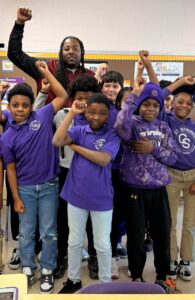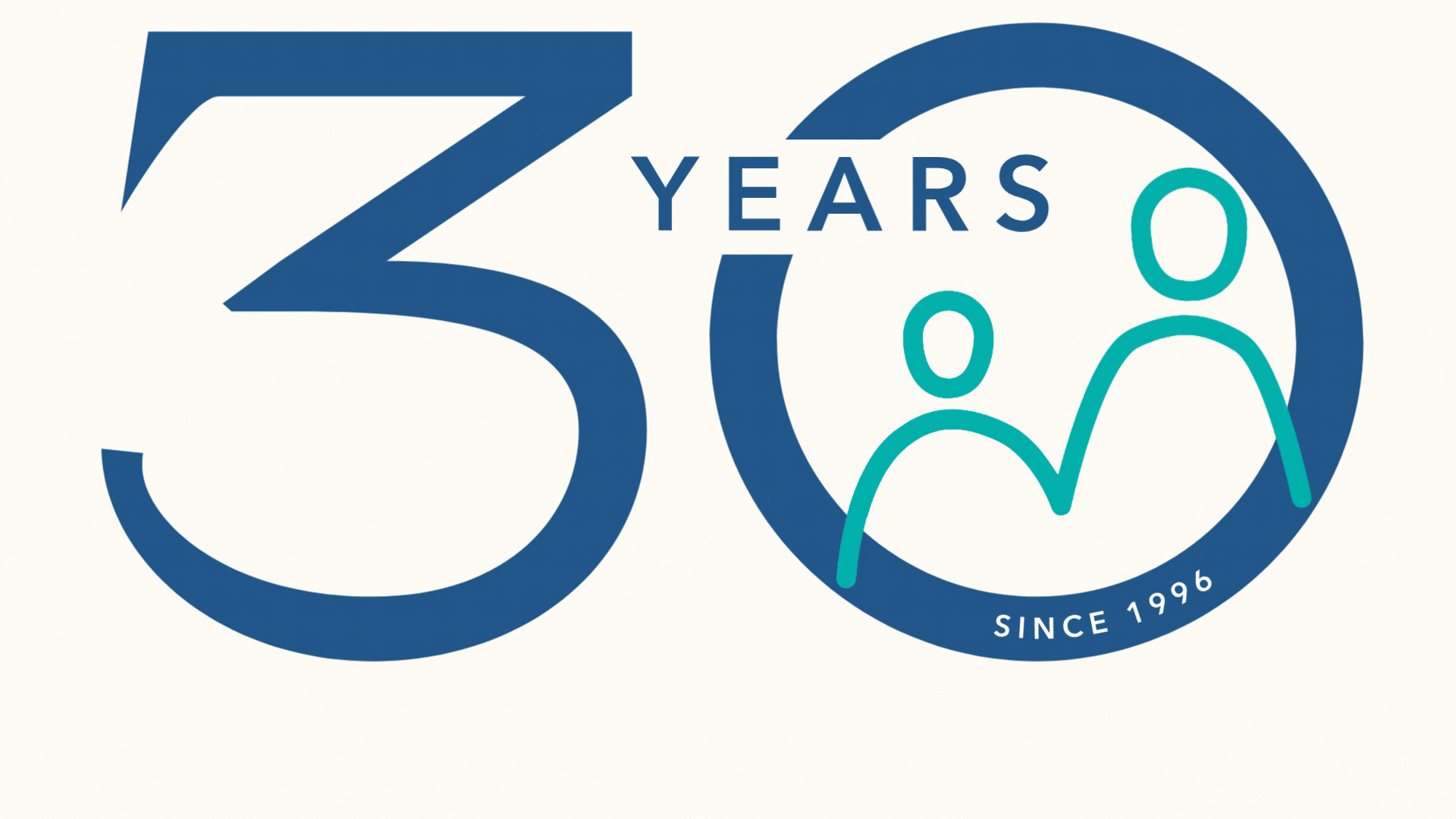Every child can be a leader. It’s the attitude embraced by City Springs Elementary / Middle School, a Baltimore Curriculum Project (BCP) neighborhood conversion charter school.
 In 2017, City Springs officially adopted the Franklin Covey Foundation’s Leader In Me Program to create a culture of individual success, teamwork, and accountability. Using the program’s “The 7 Habits of Happy Kids” (based on the bestselling book, The 7 Habits of Highly Effective People by Stephen R. Covey), the school has taught leadership and life skills to middle school students, originally, in a unique class called Leader in Me.
In 2017, City Springs officially adopted the Franklin Covey Foundation’s Leader In Me Program to create a culture of individual success, teamwork, and accountability. Using the program’s “The 7 Habits of Happy Kids” (based on the bestselling book, The 7 Habits of Highly Effective People by Stephen R. Covey), the school has taught leadership and life skills to middle school students, originally, in a unique class called Leader in Me.
This year, the class, which has been taught by Edward Pullen since its inception at City Springs, includes Pre-Kindergarten through 8th grade. The curriculum focuses on City Springs’ 8 Habits:
- Be Proactive
- Begin with the End in Mind
- Put First Things First
- Think Win-Win
- Seek First to Understand, Then to Be Understood
- Synergize
- Sharpen The Saw
- Find Your Voice and Help Others Find Theirs (the school’s additional 8th habit)
We spoke to Coach Pullen, who has coached football and basketball at City Springs for 11 years, about the program. Here he shares how leadership is now part of the school’s culture, in class, in the hallways, on the playing field, and outside of school.
How did you begin teaching the Leader in Me course?
Dr. Richetta [Rhonda Richetta, City Springs Principal] asked me if it was something that I would love to do. I was super thrilled because Leader in Me is right up my alley with teaching and coaching. The first few years of Leader in Me was for 7th and 8th grades. Last year, we extended it to 4th through 8th, and this year we added Pre-K through 3rd grade. It’s the whole school now.
What is the curriculum that you use?
Franklin Covey provides the curriculum, but I tweak it a lot to make it more understandable for the kids. I utilize the Leader in Me website as well to create lessons for the age groups that I’m teaching. For example, if I am teaching 1st grade, my lesson will be more visual than it is for 8th graders. I will provide videos, and we do a lot of role playing and modeling so that the kids can understand what the Habit means. When they can get up and act things out, it helps them understand it better.
For older students, we also role play, but we do skits at the end of the week once I feel that they’ve learned what the Habit is. In middle school, we go through some serious content and watch videos, too.
I’ve had speakers come in and we’ve had video conferences with adults about character and what it means to do the right thing in and out of school. The kids are very intrigued when I share my personal life stories with them and how it relates to the Habit, like being proactive.
How has the class and teaching the Habits made a difference at City Springs?
The habits in the school are great. They work! Kids will walk down the hall and tell me, “Hey, Coach, I’m being proactive!” Or, “Today, I put first things first and took out the trash before I went out and played.” Parents come to school and tell me how their kid is now doing things without the parent having to tell them. I will tweak lessons to include something that connects to home and school.
Why is leadership development so crucial for students?
The first thing I want the kids to understand is that the Habits that I’m trying to instill in them are not just for school. Leadership skills are good for home and your daily life. I help them relate to issues that they are currently going through.
This is not a course where they get a grade. I tell them I just need their honest opinion and to tell the truth about whatever it is. When we are writing in journals, no one is critiquing or telling you that what you wrote was incorrect. I ask the kids to be as honest as possible when they’re speaking. When I start diving into whatever we are working on, leadership is the first thing that the kids are looking to do.
For example, we may look at the situation from the school aspect but also from the home aspect. We talk about what happens if they have an argument with their parents before school drop-off and how it changes their attitude. Leadership development builds the confidence in every child that walks through the door to have the mindset that whatever they are dealing with at home, that they can get help here. And whatever they are dealing with at school, they can get help with at home. We work together to achieve a common goal. I’m teaching them how to navigate arguments, how to seek first to understand rather than be understood, and to hear a person out.
Share a proud moment from teaching the class.
We have Peer Mediators, and I observe them using the Habits and leadership skills in their mediations. They talk with peers about what it means to be proactive, to put first things first. They can use the class in context for these conversations. It’s a blessing to see everyone exercising multiple Habits.
What’s most rewarding in this work?
Seeing students who typically have a lot of behavioral problems because they just don’t know how to navigate certain issues utilize the Habits to change their outlook and perspective on how they deal with their peers. We talk about being proactive versus being reactive, thinking about and learning self control, and putting first things first. I get so much out of watching the kids change over time.
Thanks, Coach Pullen, for your leadership!
